
Ella in Hollywood is a live 1961 album by Ella Fitzgerald, with a jazz quartet led by Lou Levy, recorded in Hollywood, Los Angeles.
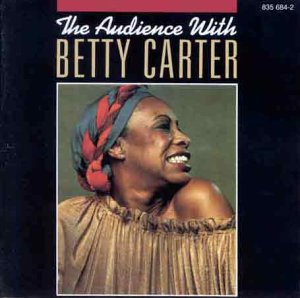
The Audience with Betty Carter is a 1980 live double album by the American jazz singer Betty Carter.

Social Call is an album by Betty Carter featuring Ray Bryant and a big band arranged by Gigi Gryce. Of its eleven tracks, the first six were recorded in 1955 and originally released as part of the album Meet Betty Carter and Ray Bryant. The other five tracks were recorded in 1956 but remained unissued until this compilation, which Columbia Records released in 1980.

I Can't Help It is a 1992 Betty Carter compilation album. It contains all of the tracks from her albums Out There with Betty Carter and The Modern Sound of Betty Carter. The same combination of tracks had previously been released as a double LP by ABC Records under the title What a Little Moonlight Can Do.
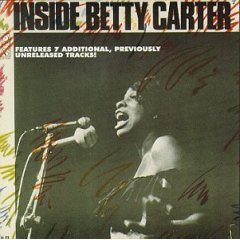
Inside Betty Carter is a 1964 Betty Carter album. It contains the first recording of Carter's signature song, "Open the Door". Originally released on the United Artists label with eight tracks, it was reissued by Capitol Records in 1993 with seven previously unreleased tracks from a 1965 recording session that included Kenny Burrell on guitar.

Finally, Betty Carter is a live album by Betty Carter. Though it was recorded in 1969, its release was delayed until 1975 because the master recording was stolen. A second album of material recorded from the same concert, Round Midnight, was released the same year.

The Betty Carter Album is a 1976 album by Betty Carter. It is unique among her albums in its use of overdubbing on some tracks to allow her to record multiple vocal lines. It was also her first album for which she wrote the majority of the songs herself.

Out There is a bebop album by jazz vocalist Betty Carter with an ensemble under the direction of alto saxophonist Gigi Gryce. The arrangements were provided by Gryce, Ray Copeland, Melba Liston, Benny Golson and Tommy Bryce. The album was produced by Esmond Edwards and released 1958 on Peacock Records. Ron Wynn of Allmusic called the album "a dynamic set."

Blossom Dearie is an album by Blossom Dearie that was recorded in 1956 and released in 1957. It was her first recording for Verve.

Round Midnight is a 1975 live album by Betty Carter. It was recorded at the same 1969 concert as her album Finally, Betty Carter. It is not to be confused with Carter's similarly titled 1963 studio album, 'Round Midnight.
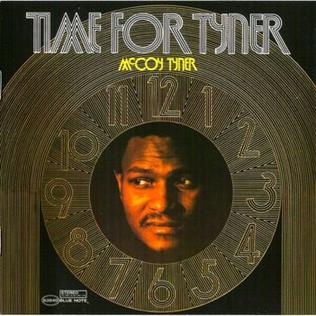
Time for Tyner is the ninth album by jazz pianist McCoy Tyner and his third released on the Blue Note label. It was recorded in May 1968 and features performances by Tyner with vibraphonist Bobby Hutcherson, bassist Herbie Lewis and drummer Freddie Waits.

Julian Cannonball Adderley and Strings is the third album by jazz saxophonist Cannonball Adderley, and his second released on the EmArcy label, and features Adderley with an orchestra directed by Richard Hayman.

In Person is a live album by American jazz pianist Bobby Timmons recorded in 1961 at the Village Vanguard and released on the Riverside label.

Trio and Solo is an album by American jazz pianist Randy Weston recorded in 1955 and 1956 and released on the Riverside label. Six tracks had previously appeared on the 10-inch LP The Randy Weston Trio released in 1955. The album was later released on CD as Solo, Duo & Trio compiled with Weston's 1955 debut recording Cole Porter in a Modern Mood.
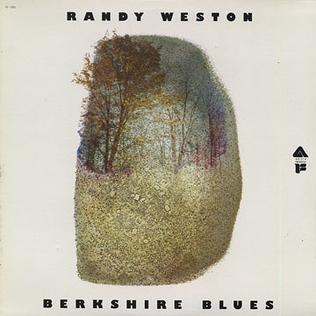
Berkshire Blues is an album by American jazz pianist Randy Weston, recorded in 1965 and released on the Freedom label in 1977.

Jazz in ¾ Time is an album by American jazz drummer Max Roach featuring tracks recorded in late 1956 and early 1957 and released on the EmArcy label.

Jug & Dodo is a 1972 double album featuring pianist Dodo Marmarosa and saxophonist Gene Ammons. It was recorded in 1962, but was not released until ten years later, on the Prestige label.

Beautiful! is an album by Charles McPherson which was recorded in 1975 and released on the Xanadu label.
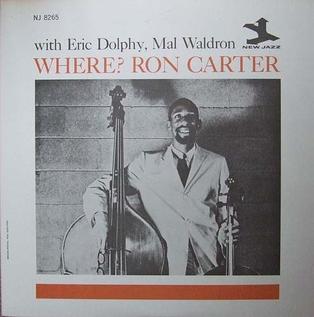
Where? is the debut album by bassist Ron Carter recorded in 1961 at Van Gelder Studio and released on the New Jazz label. Some reissues of the album appear under Eric Dolphy's name.

The Great Jazz Trio at the Village Vanguard Again is a live album by the Great Jazz Trio – pianist Hank Jones, bassist Ron Carter and drummer Tony Williams – recorded in 1977 for the Japanese East Wind label but not released until 2000.




















